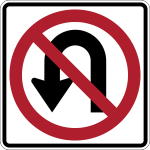
Non-moving violations include equipment violations, parking violations, and paperwork violations relating to insurance, registration, licensing, and inspection.
Traffic court is a municipality’s specialized judicial process for handling traffic cases. Certain states have the option for a person to request a Trial by Written Declaration, and those states are: California, Florida, Hawaii, Indiana, Louisiana, Nebraska, Ohio, Oregon, and Wyoming.
Equipment Violations
An equipment violation is one of the 3 types of non-moving traffic violations, meaning a traffic violation that occurs while the vehicle is not in motion. Specifically, an equipment violation is a violation of the statute, ordinance, or rule relating to traffic movement and control that involves equipment, vehicles or their drivers, owners, or pedestrians, and miscellaneous offenses not categorized elsewhere. Unlawful vehicle modifications and mechanical violations are committed when you use a vehicle that is not properly equipped or whose equipment is malfunctioning.
The Most Common Equipment Violations Include:
- Illegal window tint
- Defective headlights
- Defective taillights
- Defective turn signals
- Expired registration tabs
- Missing license plate
- Improper use of high beams
- Possession of a radar jamming device
- Defective speedometer
- Hazardous cargo
- Improperly loaded cargo
Paperwork Violations
A paperwork violation is considered a non-moving traffic violation, otherwise known as a traffic violation that occurs while the vehicle is not in motion. Paperwork violations are considered civil matters, as they involve the vehicle’s actual owner, whereas moving violations involve the driver of the vehicle and not necessarily the vehicle’s owner. Paperwork violations are one of the 3 types of non-moving traffic violations, along with equipment violations and parking violations. Specifically, paperwork violations are non-moving traffic violations that involve automobile insurance, registration, or inspection.
The Most Common Paperwork Violations Include:
- No proof of insurance
- Expired insurance
- Lack of SR-22 insurance (or lack of proof of SR-22 insurance)
- Driving on a suspended driver’s license
- Driving with an expired driver’s license
- Expired registration
Parking Violations
A parking violation is defined as the act of parking a motor vehicle in a restricted place, or parking in an unauthorized manner. Stopping, standing, or parking is prohibited along certain roadways and it is against the law, virtually everywhere, to park a vehicle in the middle of a road or highway. Parking violations are usually cited by a police officer or government official in the form of a traffic ticket. Different violations can affect your automobile insurance in different ways, and each parking violation varies by state, insurance company, and by driving record. Parking tickets usually do not have any impact on your automobile insurance premium, as they don’t typically cause a serious hazard to other drivers. Since parking tickets are considered non-moving violations, they are rarely recorded in your driving record. However, excessive unpaid parking tickets could eventually result in the suspension of your license as well as possible jail time.
The Most Common Parking Violations Include:
- Parking on the sidewalk
- Parking in a prohibited space
- Parking at a parking meter without adequately paying
- Parking in a handicap parking spot illegally
- Double parking
Contact LegalHelpLawyers.com today for legal assistance with non-moving violations!

